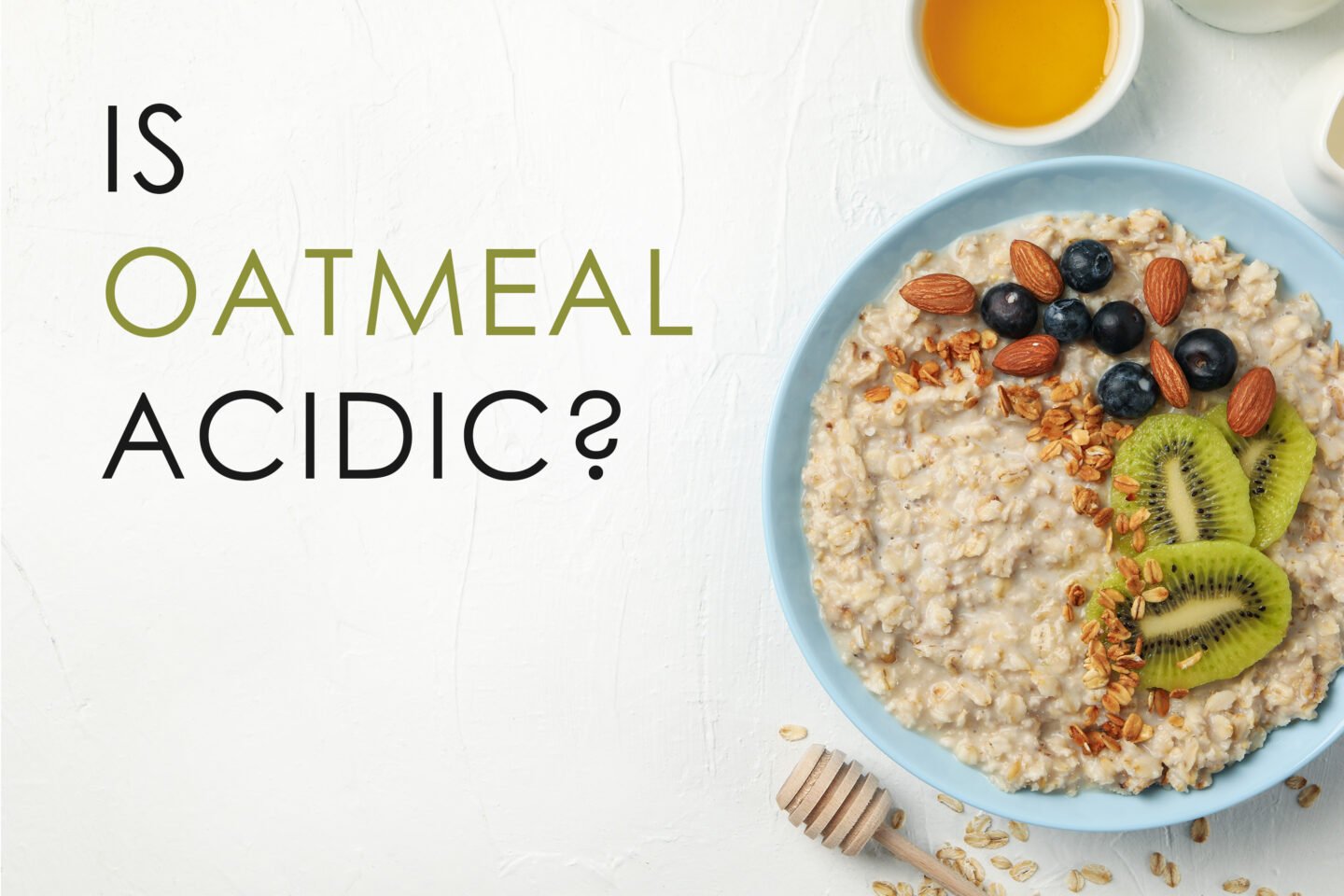Oatmeal is a delicious, nutritious breakfast and can also be baked into bread, cookies, or cakes. As a breakfast, adding fresh fruit, nuts, or yogurt makes it even tastier and more nutritious.

However, many people suffer from acid reflux or GERD, and they often follow a diet low in acidic foods and drinks to avoid triggering their symptoms. Heartburn, the most common symptom, is always unpleasant and can be debilitating for some. Many foods are acidic, including some cereals, so a low-acid diet can be tricky to design and maintain.
Can those on such a diet enjoy the occasional bowl of oatmeal?
Table of Contents
Is Oatmeal Acidic?
Like most grains, oatmeal is slightly acidic but acid-forming, so it may trigger acid reflux and GERD symptoms.
However, everyone's symptom triggers are different. If you can tolerate it, oatmeal is a nutritious addition to a healthy diet.
What Is the pH of Oatmeal?
The pH of cooked oatmeal is around 6.20-6.60, making it slightly acidic. However, as it's acid-forming, it may still trigger acid reflux symptoms in some.
Is Oatmeal Healthy?

Yes, oatmeal is among the healthiest of grains.
For example, a serving of oatmeal contains more than the recommended daily intake of manganese, which reduces inflammation and supports bone health.
It's also high in fiber, which studies show can reduce the frequency and severity of acid reflux and GERD symptoms. It also soaks up excess stomach acid, making acid reflux less likely.
However, it's important to note that oatmeal is also acid-forming, which somehow negates this claim.
Oatmeal is very high in antioxidants and phenolic compounds, especially avenanthramides, which lower blood pressure and dilate blood vessels, improving blood flow.
Other antioxidants in oatmeal remove free radicals from your body, preventing oxidative stress and cellular damage to your cells.
Eating oatmeal may also lower bad cholesterol levels, reducing your risk of arterial inflammation, tissue damage, and cardiovascular disease.
Oatmeal won't spike your blood sugar levels, aiding healthy weight control and improving insulin sensitivity.
Is Oatmeal Bad for Acid Reflux?

Although oatmeal is only slightly acidic, it is acid-forming, adding to one's acid load. Oatmeal may trigger or worsen symptoms in some with acid reflux or GERD.
However, not everyone with acid reflux is highly sensitive to oatmeal. Some may tolerate it, while it triggers symptoms in some.
Is Oatmeal with Milk Better for Acid Reflux?
Like most dairy products, milk is acidic, so adding it to your oatmeal makes it more likely to trigger your symptoms.
Most kinds of milk, including plant-based ones, are acid-forming, so they may increase the likelihood of acid reflux symptoms.
How Can You Make Oatmeal Less Acidic?
Adding alkaline fruit to your oatmeal, such as mangos, papayas, plums, or cherries, makes it less likely to trigger your symptoms.
Cooking it with water or coconut milk may also reduce your chances of having a heartburn attack. As long as it's made from fresh coconuts, coconut milk is alkaline-forming.
Don't know what to drink? Check out these articles: 20 Most and Least Acidic Juices and 20+ Alcoholic Drinks Ranked by Acidity Level
